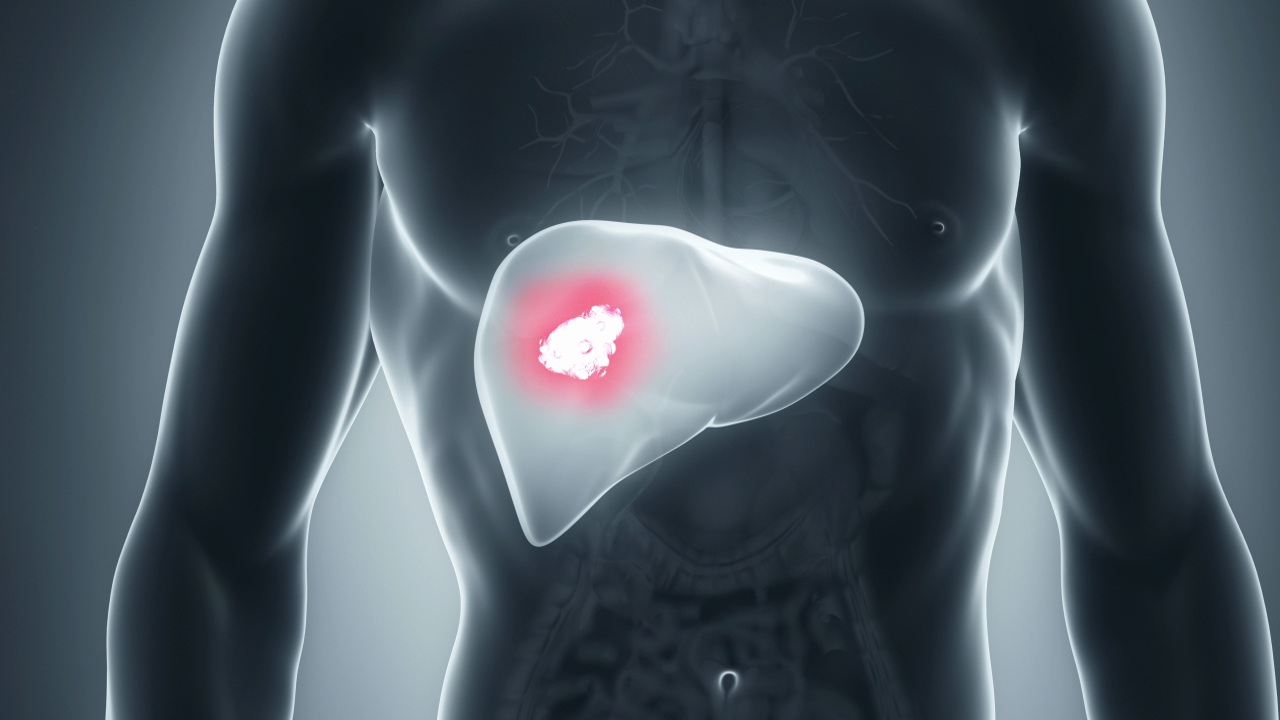Liver Cancer
Liver cancer begins in the cells of the liver, an organ essential for filtering blood and metabolizing nutrients. It is often diagnosed at an advanced stage due to the subtle nature of early symptoms.
Signs and Symptoms Of Liver Cancer
-
Unexplained weight loss
-
Loss of appetite
-
Upper abdominal pain and swelling
-
Jaundice (yellowing of the skin and eyes)
-
Fatigue and general weakness
Types of Liver Cancer
The main types of liver cancer include:
-
Hepatocellular carcinoma (HCC): The most common type, originating in the main liver cells (hepatocytes).
-
Intrahepatic cholangiocarcinoma: Starts in the bile ducts within the liver.
-
Hepatoblastoma: A rare type of liver cancer that typically occurs in children.
When to Consult a Doctor
If you notice unexplained weight loss, persistent upper abdominal pain, jaundice, or other concerning symptoms, it's crucial to consult a healthcare professional.
Causes
Liver cancer can be caused by a variety of factors, including chronic infection with hepatitis B or C, cirrhosis, excessive alcohol consumption, and certain inherited liver diseases.
Risk Factors Involved in Liver Cancer
-
Chronic hepatitis B or C: Long-term infection with hepatitis B or C is a significant risk factor.
-
Cirrhosis: Scarring of the liver caused by various liver diseases increases the risk.
-
Alcohol abuse: Heavy alcohol consumption over time can lead to liver cancer.
-
Nonalcoholic fatty liver disease: Linked to obesity and diabetes, this condition increases the risk of liver cancer.
-
Exposure to aflatoxins: Toxins produced by molds that can contaminate food supplies, particularly in warm and humid regions.
Liver Cancer Diagnosis
Diagnosis may involve the following methods:
-
Blood tests: To detect abnormal liver function or specific tumor markers.
-
Imaging tests: Such as ultrasound, CT scan, or MRI to visualize the liver and detect tumors.
-
Biopsy: A sample of liver tissue may be taken for analysis to confirm the presence of cancer.
Stages of Liver Cancer
The stages of liver cancer are classified from 0 to 4:
Stage 0: Cancer is confined to a single small tumor in the liver.
Stage 1: A single tumor that hasn't spread to nearby blood vessels.
Stage 2: Cancer has spread to nearby blood vessels or multiple tumors are present.
Stage 3: Cancer has spread to nearby organs or large blood vessels.
Stage 4: Cancer has spread to distant organs, such as the lungs or bones.
Treatment Of Liver Cancer
Surgical Intervention
Depending on the stage and extent of liver cancer, treatment options include:
-
Partial hepatectomy: Surgical removal of the part of the liver affected by cancer.
-
Liver transplant: Replacing the diseased liver with a healthy one from a donor, often the best option for advanced cases.
Localized Treatments
-
Radiofrequency ablation: Using heat to destroy cancer cells.
-
Chemoembolization: Delivering chemotherapy directly to the liver through the blood supply.
Systemic Treatments
-
Targeted therapy and immunotherapy can be used to treat advanced liver cancer by enhancing the body's immune response to cancer cells.
Palliative Care
-
Palliative care is essential for managing symptoms and maintaining quality of life in advanced liver cancer.
Prevention
To lower your risk of liver cancer, consider the following:
-
Get vaccinated: Vaccination against hepatitis B can significantly reduce the risk of liver cancer.
-
Avoid excessive alcohol consumption: Limiting alcohol intake helps prevent liver damage.
-
Maintain a healthy weight: Obesity and nonalcoholic fatty liver disease are linked to liver cancer.
-
Regular check-ups: Particularly important for those with a history of liver disease or hepatitis.
